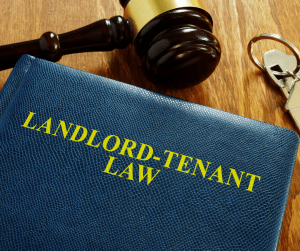The latest news for New Zealand Landlords and Tenants
Party policies that affect landlords and tenants: 2020 election
On October 17th, New Zealand’s 2020 election will take place, but what will the end vote mean for landlords and tenants?
Housing is always an issue that party leaders are expected to speak on. This year, policies on housing affordability, housing quality, and social housing have been put forward by several parties, with only 3 out of the 17 addressing renting in their proposals. We take a look at the main party policies to affect landlords and tenants so you know what to expect after the October votes are counted and a final decision is made.
Quick overview of housing and renting issues in New Zealand
Before we dive into what the party policies are. Here is some insight as to why housing in New Zealand is an issue that always arises in elections.
Supply and demand
In March 2020, New Zealand’s population officially hit 5 million. Stats NZ called this “the fastest million in our history” as it only took 17 years to reach. In 2003, there were 4 million people in New Zealand and an estimate of 1,557,400 private dwellings. In 2020 this number of houses increased to be 1,928,900. That’s approximately 371,500 more homes for one million more people.
Affordability and quality
Average house prices in New Zealand continue to climb along with the number of tenants. Statistics from May 2017 show that the average house price was increasing 10 per cent every year. Despite the economic effects of Covid-19, house buying prices are still expected to rise by 17% over the next 3/4 years.
Party policies that affect you as a landlord or tenant
Introduce a Rental Warrant of Fitness
- Supported by the Green Party and The Opportunities Party
A policy reflecting the new Healthy Homes standards introduced last year, the proposed Rental WOF intends to make sure rental properties are warm, dry, and meet certain standards. While TOP says this will ensure rentals meet modern standards, the Green Party wants to also increase heating standards. For landlords, this means more standards to meet and an independent person assessing your property. If you’re a tenant, this means better quality rental properties.
Relax heating and ventilation standards for rentals
- Supported by the National Party
On the flip side of the proposed Rental WOF is a proposal to relax the introduced Healthy Home standards. This policy would relax the heating and ventilation requirements. For landlords who don’t already meet the Healthy Homes standards, this means saving money. If you’re a tenant, this means homes that are less warm and dry.
Require landlords and property managers to register
- Supported by the Green Party
As anyone is able to be a property manager, this policy aims to introduce a registration system for both PMs and landlords. For property managers, this means having to meet regulations just like real estate agents do. For landlords, this means having to register with the Ministry of Housing and Urban Development. If you’re a tenant, this means having landlords and property managers that are professional, accountable, and regulated.
Work with community housing providers to increase housing supply
- Supported by the National Party
A policy that aims to work with community housing providers to increase the number of houses. This policy means more housing for NZ’s growing number of tenants.
Replace the RMA
- Supported by the National Party, TOP and ACT
Although there are differences in how each party wants to approach replacing the RMA, all 3 want it gone. The Resource Management Act is a law passed in 1991 that promotes “the sustainable management of natural and physical resources.” If the RMA was replaced or changed, this could mean less cost and delay on new housing projects for landlords and investors.
Continue building state houses
- Supported by Labour, the National Party, and the Green Party
While both Labour and National Party propose to continue building state houses, the Green Party says it will build more. Alongside this, the Green Party pitches a policy that aims to clear the social housing waiting list within five years. This means more affordable and quality housing for tenants, and more help for vulnerable New Zealanders.
Relax building regulations and allow insured builders and designers to self-approve certain work
- Supported by New Conservative
These two party policies assume the biggest barrier to owning a home is cost. The New Conservative party want to relax building regulations and give certain builders the ability to self-approve work. This would make it easier to build your own home or investment property and will benefit both investors and first homeowners who look to build.
Introduce a capital gains tax on properties other than the family home
- Supported by the Māori Party
Although a CGT was ruled out in a 2019 government vote, the Māori Party wants to introduce one for properties that aren’t the owner’s family home. They say this will alleviate housing pressure for tenants and first home buyers. But this also means more tax for landlords and investors.
Past promises and party policies on housing
In the 2017 election, the National Party’s failure to acknowledge the housing crisis led to a Labour push in the polls. Although comments by National helped this, so did an optimistic Labour party policy called KiwiBuild.
KiwiBuild is a party policy that launched in 2012 by Labour’s then-leader David Shearer. While it was only activated in 2017 with the election of Jacinda Ardern, KiwiBuild has not been very successful in delivering on its promise.
The KiwiBuild promise
In the first year, KiwiBuild aimed to build 1000 homes. Then, 5000 homes in the second, and 10,000 the year after. But, the big promise of KiwiBuild was to have 100,000 new houses built within the decade. This has since been abandoned with only 393 KiwiBuild houses being built by March 2020 after three years of a Labour-led Government.
Although many NZ’ers criticise KiwiBuild’s undelivered promises, both Jacinda Ardern and Housing Minister Megan Woods admit the policy was overly ambitious and say “there’s no silver bullet when it comes to housing.”
How to lobby your local MP on housing issues
Every three years, New Zealanders get the right to vote. But, you can also have your voice heard through lobbying. This involves getting to know an MP and persuading them about your position on an issue.
To be effective at lobbying, it does involve work, research, and time. It’s a good idea to build a relationship with the MP, to visit them in-person, and to provide a good ground of research about why you have this opinion.
- Your first step if you want to lobby an MP, is to choose one.
- Your second step is to build a relationship with this MP while building support for the issues you address.
Although lobbying requires a lot of effort, having direct access to the people who make the decisions is hugely valuable and there are ways to successfully go about this. If you’re passionate and prepared to talk then you’re already halfway there!




